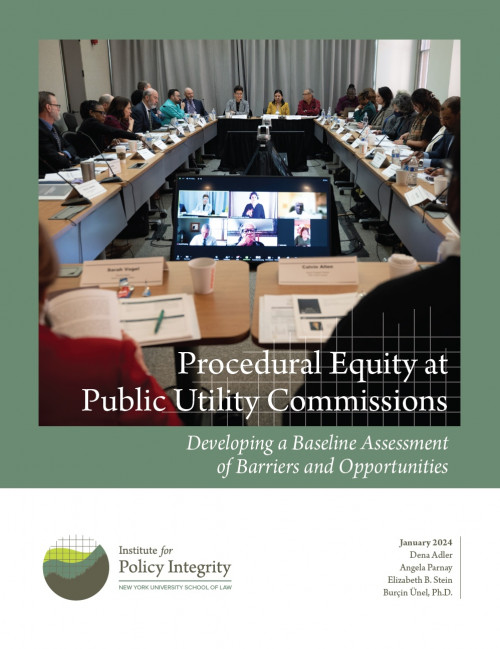Combatting climate change will require major transitions in the energy sector, including reductions in fossil fuel use, widespread electrification, and improved energy efficiency. In the United States, a state-level government entity, typically called a public utility commission or public service commission, will play a key role in this transition for most states.
As economic regulators of public utilities, Commissions make decisions that can affect where and when clean energy displaces fossil-fuel combustion, and how costs associated with energy system investments are passed on to consumers. Commission decisions can therefore affect emissions outcomes as well as the health, energy, environmental, and affordability burdens faced by minority, low-income, and otherwise disadvantaged communities.
Although many Commission processes incorporate some form of stakeholder input or participation, it is often difficult for the public to participate due to the technical nature of these proceedings, as well as their procedural complexity and the resource-intensiveness of participation. These challenges can infringe upon procedural justice and contribute to inequitable outcomes. “Procedural justice” encompasses fair access to process, the right to equal voice and representation during decisionmaking processes, respectful treatment, access to adequate information, and the impartiality of the decisionmaker.
Commissions can shape their processes in various ways to enhance—or undermine—procedural justice. But a lack of information on current practices makes it difficult to track measures that various Commissions have adopted, provide opportunities for Commissions to learn from one another, and encourage improvement over time.
In this report, we reviewed a range of practices and conditions potentially conducive to enhancing procedural justice at Commissions in nine states. This review was based on a structured survey of Commissions’ websites, resources available to prospective participants, and relevant statutes and regulations.

